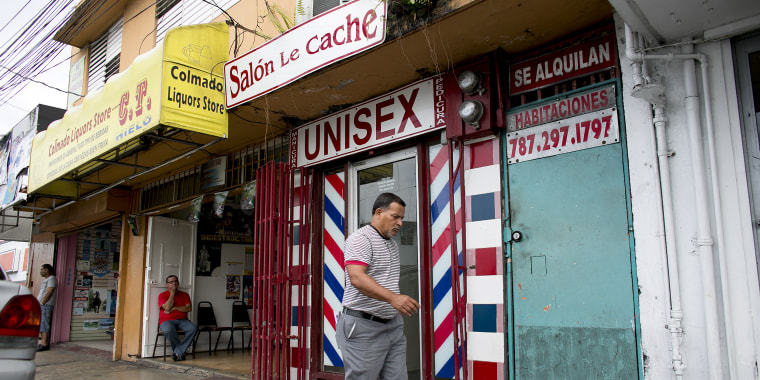Puerto Rico’s path out of bankruptcy was shortened last week when a federal judge approved a restructuring plan that reduces the island’s $70 billion public debt by about $26 billion, and reduces its yearly debt payments to about $1.5 billion, from $3.9 billion.
For the 3.2 million people who live there, the restructuring is just the latest example of an utterly failed colonial experiment.
It was a significant development in a decadeslong public debt problem caused directly by Wall Street, Washington and Puerto Rico’s political class. Years of financial mismanagement and reckless spending resulted in an “unpayable” debt. In an effort to scold the Puerto Rican government for its mistakes, a 2016 bipartisan Promesa bill, which was signed by President Barack Obama, established the creation of an unelected and politically appointed fiscal control board that would literally run Puerto Rico’s economy.
Welcome to colonialism.
Predictably, the Financial Oversight and Management Board for Puerto Rico, known locally as la junta, was quick to praise the development last Tuesday. Its Twitter profile declared that “a new chapter in PR’s history” had begun and said “a fair solution to PR’s debt crisis” had arrived. Perhaps that sounds great to those who view Puerto Rico from afar or who only began paying attention to the island after Hurricane Maria decimated it in 2017, but for the estimated 3.2 million people who live there — at least those who don’t have access to capital or aren't flush with wealth — the restructuring is just the latest example of an utterly failed colonial experiment.
In the end, the debt burden and the continued austerity push will fall once again on the people of Puerto Rico, while those who argued for the debt deal (particularly the attorneys who made close to $1 billion during proceedings) will continue to profit from it.
Austerity has become normal for Puerto Rico. A 2021 analysis from the Center for a New Economy explained that the post-Maria rebuilding process hadn’t begun. (More recent reports suggest that there is now some slight movement.) Meanwhile, the island’s population has dropped 11.8 percent since 2010. The Covid-19 pandemic has led to even more economic deficits, which only gave la junta more reasons to keep pushing for a new debt agreement that served bondholders over Puerto Ricans.
Government officials are hoping that if investors see that Puerto Rico is finally getting past its debt problem, a territory that is actually a U.S. colony will suddenly have an economic comeback that shocks its doubters.
Such hopes are riding on simple trickle-down economics. Pay down your debt and, in the meantime, pass laws that will attract wealthy (and mostly non-Puerto Rican individuals) to live tax-free on the island. A latest example is the arrival of cryptocurrency proponents who are attracted by the prospect of being able to live in Puerto Rico for just 183 days a year without paying taxes on capital gains. While such investment might play well with a government and political class that is desperate for revenue, Puerto Ricans aren’t exactly welcoming these new residents with open arms. Recently, Puerto Ricans have used social media to call out an increasing number of people who have treated the island like a cold investment that will somehow save the people who call the island home.
Puerto Ricans have used social media to call out to people who have treated the island like a cold investment.
Their anger and frustration is leading to serious discussions about what it means to be a Puerto Rican in a post-Maria world. While the perpetual debate about statehood hasn't gained traction in Congress, movements against austerity are a visible part of Puerto Rican society. And even after Ricardo Rosselló resigned as governor in disgrace in 2019 amid anger against a culture of corruption, the contempt for the political class is also still high. That contempt coexists with frustration at the Puerto Rico Department of Education for closing more schools because of “consolidation” and at the lack of opportunities for a young generation that has lived on a debt-ridden island since they were children.
Puerto Rico needs a clean slate, but any radical idea to have all the debt declared illegal gets tossed aside as a socialist pipe dream. The mistakes of the past several decades, perpetuated by years of unregulated spending by the government of Puerto Rico with the help of its Wall Street friends, continue to burden the people, preventing them from having any sense of a breakthrough.
As one Puerto Rican advocacy group said after the debt decision, “Now we are saddled with unsustainable debt payments for decades with little to no reforms to improve the delivery of essential services, no tools for economic development and no end in sight to the junta's yoke on our people. Now is the time to audit the debt, cancel illegal claims and make Puerto Rico whole again.”
The worry is that those who don’t have much interest in making “Puerto Rico whole again” — la junta, high-priced lawyers, government enablers, Wall Street, Congress and even the White House — are more than content to keep the colonial status quo intact. This latest decision has a small group of winners but, as has been the case for more than a century, the biggest losers are the people of Puerto Rico.
As a Puerto Rican who was born and shaped by the island, that is the exhausting reality. The notion of progress is just an illusion. The burden of the colonizers’ errors will still fall on a proud people disgusted that power on the island still resides with those colonizers and their local allies.

